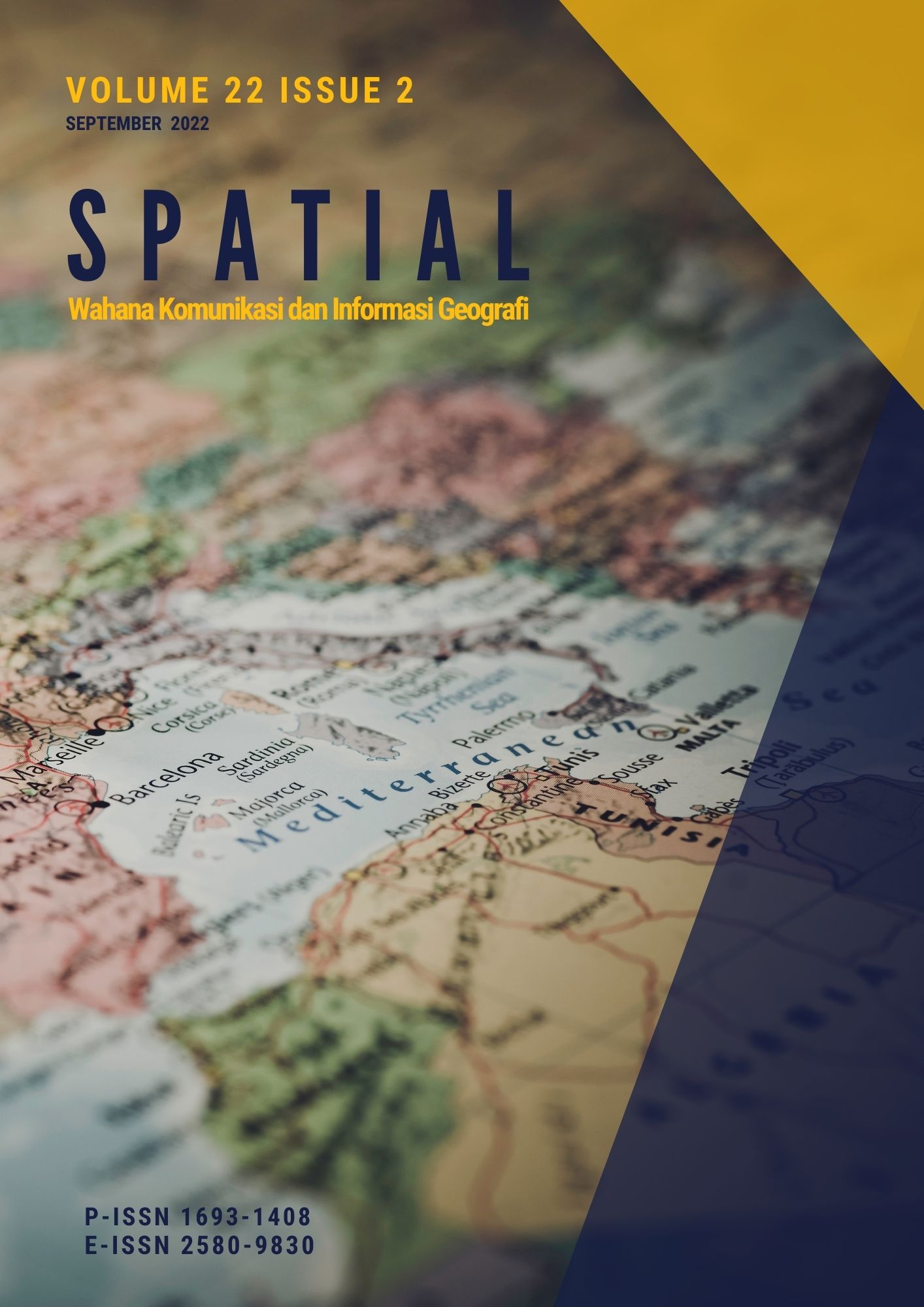Study of Economic Inequality in The Agglomeration Region of Malang Raya
DOI:
https://doi.org/10.21009/spatial.222.08Keywords:
AGGLOMERATION, ECONOMIC, INEQUALITY, MALANGAbstract
Each region has the potential to grow and develop according to their respective conditions. The difference in these conditions results in inequality in the speed of growth and development in each region, this condition is known as disparity. The gap will be a problem if there is a gap that is too large and is caused by the wrong development system, so that it can be a cause of unrest, dissatisfaction and even a separatist movement that wants to separate itself from the Unitary State of the Republic of Indonesia. The basic problem in regional development in the Metropolitan Area, especially Malang Raya is the gap between regions where development is monocentric, centered on Malang City. Responding to such conditions, it is necessary to formulate a regional disparity system in Malang Raya, to find out the extent to which development and regional growth are concentrated in Malang Raya. In addition, it is hoped that through the formulation of the regional disparity system, it can be a reference so that the direction can minimize regional disparities in Malang Raya.
Downloads
Published
How to Cite
Issue
Section
License
An author who publishes in the journal SPATIAL Wahana Komunikasi dan Informasi Geografi agrees to the following terms:
Author retains the copyright and grants the journal the right of first publication of the work simultaneously licensed under the Creative Commons Attribution 4.0 License that allows others to share the work with an acknowledgement of the work's authorship and initial publication in this journal
Author is able to enter into separate, additional contractual arrangements for the non-exclusive distribution of the journal's published version of the work (e.g., post it to an institutional repository or publish it in a book) with the acknowledgement of its initial publication in this journal.
Author is permitted and encouraged to post his/her work online (e.g., in institutional repositories or on their website) prior to and during the submission process, as it can lead to productive exchanges, as well as earlier and greater citation of the published work (See The Effect of Open Access).
This work is licensed under a https://creativecommons.org/licenses/by/4.0/









